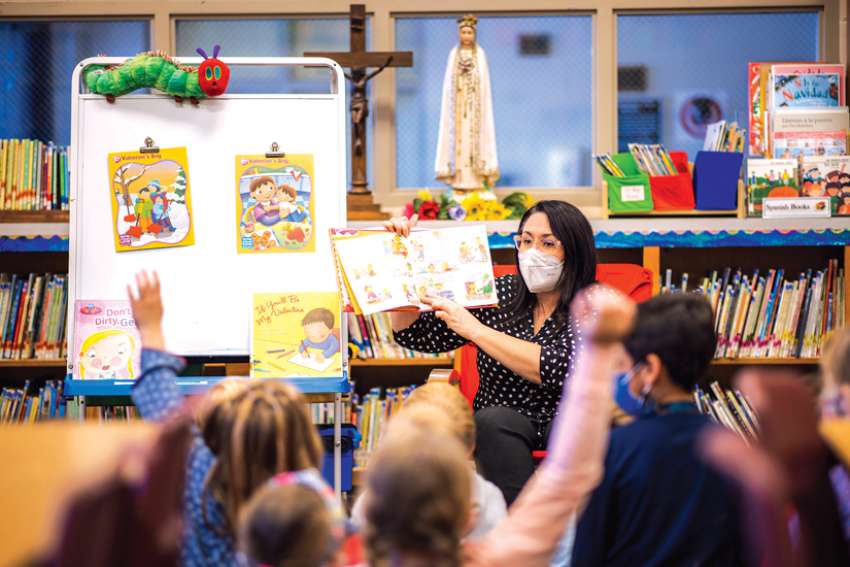Specifically, the report reveals that 27 per cent of their parents notice their child being fretful about the future, 24 per cent noticed declining social skills and 23 per cent detected adverse academic development.
Catholic educational school divisions and its member schools, another primary stakeholder in fostering the leaders of tomorrow, are devoting resources to reversing these trends largely by re-creating the day-to-day atmosphere that existed before the pandemic reared its ugly head.
“We’re excited to begin the school year largely in the way we did in the years before the COVID-19 pandemic,” said Twylla West, the communications and media coordinator for Regina Catholic Schools. “This means the return of our robust list of extra-curricular activities, school-wide assemblies, liturgies and Masses.”
West adds that Regina Catholic Schools has a division-wide focus on mental wellness in both students and staff,” and such an emphasis “is important because we care for all our school communities and want them each to grow and thrive.”
One wellbeing resource that the Saskatchewan school division is particularly proud of is the Mental Health Capacity Building (MHCB) program, which was piloted at Dr. Martin LeBoldus Catholic High School and four other public schools across the province the past several years since 2019.
MHCB, spearheaded by the Saskatchewan Health Authority (SHA) and the provincial ministries of health and education, arms participating schools with staff members who lead lessons and presentations for students, colleagues and parents about building mental health and wellness capacity. Also, the MHCB focuses on providing stigma-free prevention supports against addiction and mental illness.
In May, the government of Saskatchewan announced that an additional $800,000 is being invested in 2022-23 to expand the MHCB footprint to more schools.
Bruce Campbell, general manager of communications for the Dufferin-Peel Catholic District School Board (DPCDSB), also shared thoughts with The Catholic Register via email about championing positive mental health.
“We work towards creating a thriving Catholic community where mental health and well-being are prioritized and nurtured in support of the sacredness and dignity of all,” wrote Campbell. “We remain committed to listening to students and families and working together to meet their mental health and well-being needs.”
Dufferin-Peel is launching a couple new mental health capacity-building programs out of the gate in September.
The first is a monthly newsletter called “THRIVE,” which will be disseminated to all members of the DPCDSB community. Campbell said this publication will “highlight strategies, initiatives, and practices referencing to help promote positive mental health and well-being,” and spotlight student-created mental health resources for their peers.
The second new is a Mental Health and Well-Being Guiding Framework conceptualized by the school board. This resource, which will be introduced soon, “is built on faith and centers respect for the dignity of each student as the basis for mental health and well-being,” says Campbell. He adds that the charter will identify “the system priorities and objectives to help students, staff, and families thrive in our Catholic community.”
In April, the Ontario government announced it “reaffirmed its commitment to support student resiliency and mental well-being” by announcing $90 million in funding, which eclipses last year’s earmarked sum by $10 million. Of this extra amount, “$5 million is to be used for evidence-based mental health programs and resources.”
According to the government’s calculations, “funding will help retain the existing mental health workers in schools, including the 180 mental health professionals who are providing critical supports directly to students in secondary schools across the province.”
Meanwhile, the Canadian Radio-television and Telecommunications Commission (CRTC) made waves on this topic on Aug. 31 by announcing a new 988 call-or-text hotline for mental health and suicide prevention counselling.
This resource, derivative of the service launched in the United States this past July, is scheduled to become operational before the end of November 2023.


